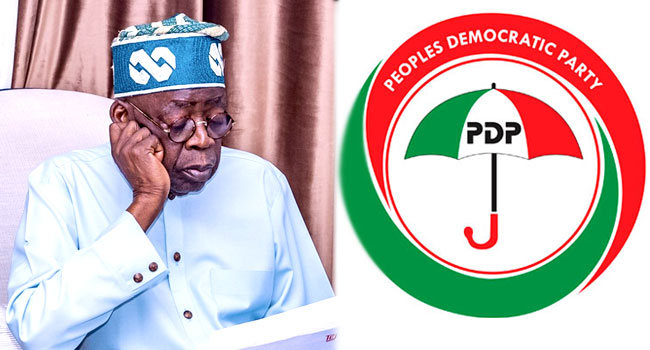ATM Usage Drops As POS Agents Handle N223tn
Point of Sale (POS) terminals processed financial transactions worth N223.27 trillion in 2024, marking a sharp rise from the N110.35 trillion recorded in 2023.
This is according to the Central Bank of Nigeria’s (CBN) latest quarterly statistical bulletin, which shows a continued shift from Automated Teller Machines (ATMs) to POS platforms for payments across the country.
The total number of POS transactions climbed from 9.85 billion in 2023 to 13.08 billion in 2024, representing a 32.7 per cent year-on-year increase. In contrast, ATM transaction volumes remained largely unchanged, inching up slightly from 1.012 billion to 1.022 billion.
ATM withdrawals in 2024 totaled N29.12 trillion, only marginally higher than the N28.21 trillion recorded the previous year, further highlighting the slowing reliance on cash withdrawals in favour of digital payments. Monthly data from the CBN also shows a consistent increase in POS transaction values throughout 2024.
In January, POS terminals processed N11.50 trillion, more than doubling the N5.28 trillion recorded in the same month of 2023. ATM withdrawals dropped significantly to N2.15 trillion, from N3.24 trillion. By February, POS transactions rose to N12.46 trillion, a 69 per cent increase from N7.38 trillion the previous year. ATM usage continued to fall, dropping to N1.72 trillion from N1.77 trillion.
In March 2024, POS transactions reached N14.73 trillion, up from N10.62 trillion in March 2023, while ATM withdrawals dropped to N1.60 trillion from N2.16 trillion. April followed with N13.74 trillion in POS value, compared to N8.55 trillion in 2023, as ATM withdrawals fell to N1.81 trillion from N2.41 trillion.
May recorded a POS transaction value of N13.91 trillion, a 67.3 per cent rise from N8.30 trillion a year earlier. ATM withdrawals dipped slightly to N2.49 trillion from N2.62 trillion. The biggest spike came in June, with POS value soaring to N19.57 trillion—more than double the N8.31 trillion in June 2023. ATM withdrawals remained nearly flat at N2.45 trillion despite a rise in transaction volume, indicating smaller but more frequent withdrawals.
In July, POS value reached N15.24 trillion, an 83 per cent increase from N8.31 trillion in July 2023. ATM withdrawals rose to N3.21 trillion, up from N2.24 trillion. August saw another surge in POS value to N18.90 trillion, compared to N9.10 trillion in the same month of 2023. ATM usage rose modestly to N2.21 trillion from N2.14 trillion.
POS transaction value in September stood at N19.69 trillion, more than double the N9.40 trillion posted in 2023, while ATM withdrawals increased slightly to N2.30 trillion from N1.99 trillion. In October, POS usage rose to N22.27 trillion from N10.60 trillion in the prior year, while ATM withdrawals declined to N1.93 trillion from N2.54 trillion—the lowest for the year.
November saw one of the sharpest increases, with POS transactions hitting N29.42 trillion, a jump from N11.28 trillion in 2023. ATM withdrawals also peaked at N3.35 trillion. December recorded the highest POS value of the year at N31.84 trillion, up from N13.20 trillion the previous year. ATM withdrawals also reached their peak at N3.91 trillion, from N2.43 trillion in December 2023.
The data reflects the continued expansion of POS infrastructure nationwide, bolstered by agency banking in both urban and rural communities. While ATMs remain in use, the data points to a steady decline in dependence on physical cash withdrawals for everyday transactions.
This growing preference for POS reflects Nigerians’ increasing appetite for convenient, fast, and accessible payment methods. However, the rapid growth has also raised concerns over transaction fees and security.
Despite the surge in usage, December 2024 saw a spike in POS charges—some agents reportedly charged N200 per N5,000 withdrawal, a 100 per cent increase. This coincided with widespread ATM cash shortages, leaving many customers with no choice but to rely on POS operators.
Inside banking halls, the situation was not much better. Most banks turned customers away due to cash unavailability, and in rare cases where cash was available, withdrawals were capped at N10,000 or N20,000.
These developments occurred despite earlier warnings from the CBN, which sanctioned nine Deposit Money Banks with fines totalling N1.35 billion for failing to dispense cash via ATMs during the festive season. The banks—Fidelity Bank, First Bank, Keystone Bank, Union Bank, Globus Bank, Providus Bank, Zenith Bank, UBA, and Sterling Bank—were each fined N150 million after spot checks revealed non-compliance with cash availability guidelines.
The PUNCH
6/23/2025, 7:12:12 AM
views 18809
5173







